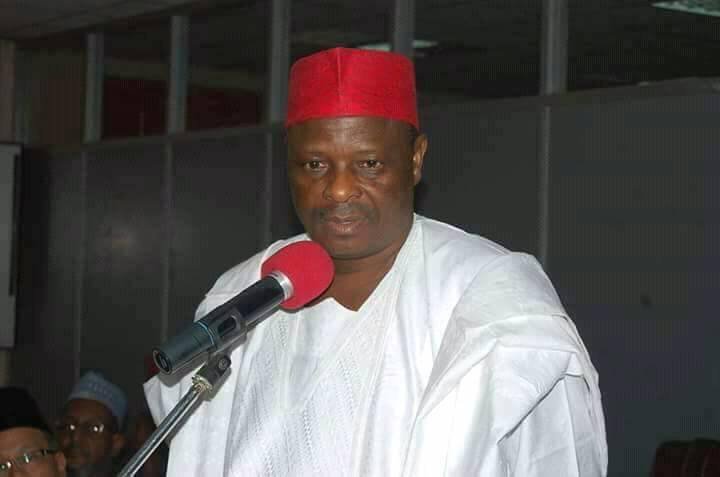The Independent National Electoral Commission (INEC) on Saturday conducted mock accreditation of voters in 436 polling units across 36 states of the federation and the Federal Capital Territory, Abuja.
Newsmen monitored the exercise in different parts of Abuja, where our correspondents observed a low turnout of voters across four polling units where the exercise was held in the federal capital.
The PUs are Area 10/Post Office in City Centre Ward, Phase 1-Site 1 (PW I&II)/PW Primary School in Usuma Ward, Kubwa; Bwari Sarki/Near Chief Palace in Bwari Central Ward, and UNG. Phase I/Central Primary School in Karu Ward.
City Centre Ward (Area 10)
Our correspondents report that INEC officials arrived as early as 8 AM for the excise scheduled for 8:30 AM.
At Area 10, the process was seamless as the few voters who presented themselves at the designated polling unit got accredited. As of press time, only 37 out of the 799 voters registered at that polling unit had been accredited.
Usuma Ward (Kubwa)
The situation was similar at the PW Primary School polling unit where INEC officials arrived early but did not accredit anybody until 9:48 AM because the voters failed to turn out.
The officials were only able to accredit a total of 8 persons as of 11:06 AM after party agents made phone calls to some of the registered voters to come out for the exercise. When the FCT Area Council Elections were held, the polling unit had about 3,317 registered voters.
The Bimodal Voter Registration System (BVAS) machine being used for the exercise rejected two voters on account of the inability of the machine to recognize the voter’s finger while the other person was rejected for using her husband’s PVC.
The voter whose finger failed to authenticate with the machine later got accredited using the facial accreditation method.
At least four INEC officials, two officers of the Nigeria Security and Civil Defence Corps (NSCDC), three observers of the EU Election Observation Missions (EU-EOM), and agents of the All Progressives Congress (APC), Labour Party and the Peoples Democratic Party (PDP) were on the ground for the exercise.
In Bwari, the turnout was low as some registered voters lined up at the designated Polling Unit near the Chief Palace in Bwari for the mock accreditation exercise.
Out of 1,799 registered voters in the polling unit, only 37 successfully got accredited as of the time of filing our report.
A number of security personnel particularly from the NSDSC were on the ground to ensure orderliness.
Some voters’ fingers were not captured by the BVAS, a development an INEC official said was a result of finger texture being tampered with. They were, however, able to get accredited using the facial method.
The mock exercise is only for accreditation and not voting, according to the INEC official who spoke to Newsmen.
Karu Ward (Karu)
The low turn for the mock accreditation held at UNG. Pashe I/Central Primary School was attributed to poor sensitization by the Independent Electoral Commission (INEC).
Here, only two voters had presented themselves for accreditation as of 10:58 am, even though 2,690 voters are said to be registered in the polling unit.
While the actual accreditation takes less than a minute, confusion over the relocation of some voters to newly created polling units trailed the exercise.
Many of the voters who showed up for the mock accreditation were confused while some expressed dissatisfaction over INEC’s failure to properly sensitize them about the decongestion of some polling units to avoid overcrowding during the general election.
Some voters who until now voted at certain PUs were told that their names were not found on the BVAS machine because INEC had shared them with other polling units created within the same premises (but which the mock exercise did to take place).
Shiaka Aminatu, a senior official at INEC’s ICT department, however, told our correspondent at the PW Primary School in Kubwa that the decongestion was done in such a way that voters were not relocated far from their previous Polling units.
“off course before the election INEC will paste the register and when the register is pasted, voters will look for their names on the register. So, where they find their names now is where they will now vote.
Most people were asked to come and move themselves during the CVR (Continuous Voter Registration) but they didn’t come in our own wisdom, we tried to see how we can reduce the crowd.
“On election day, whoever is a registered voter in this polling unit should come here. Now the new polling units are also located within this polling unit. All they need to do, maybe a day before the election, is to come and check where they belong within this compound.”
She said the commission’s aim is not to have more than 1,250 registered voters on one BVAS machine so that accreditation and voting on election day can be seamless.











